Bichon Frise vs Poodle [Breed Comparison + Photos]
There are fewer things as exciting as bringing home a new dog. But the breed of dog you choose is vital for both your and the dog’s happiness.
Do you have enough space for the dog’s size? What will their temperament be like around your children?
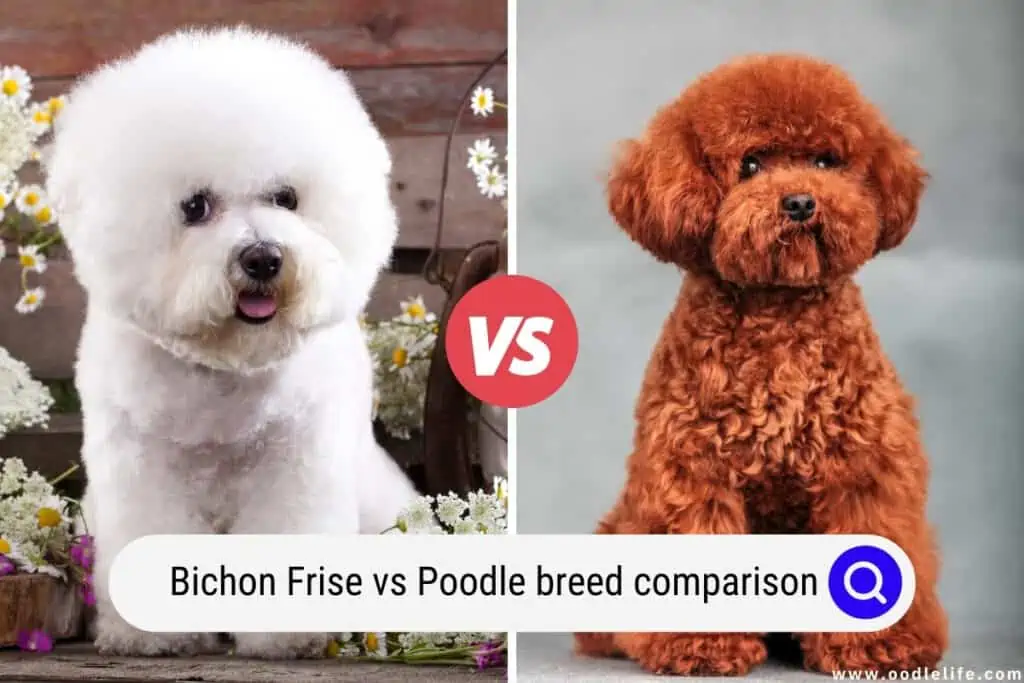
I’ll help you understand the answers to these questions and more when comparing the adorable Bichon Frise and Poodle breeds.
Breed Appearance of Bichon Frise vs. Poodle
Bichon Frises and Poodles share several of the same coat colors, including:
- White
- Cream
- Gray
- Apricot
However, of these colors, it’s most common to encounter white Bichon Frises.
In contrast, Poodles come in a wider range of colors. In addition to the colors above, you can find Poodles with the following coats:
- Brown
- Black
- Blue
- Silver
- Cafe-au-lait
Other characteristics that Poodles and Bichon Frises share are their pointed noses and floppy ears.
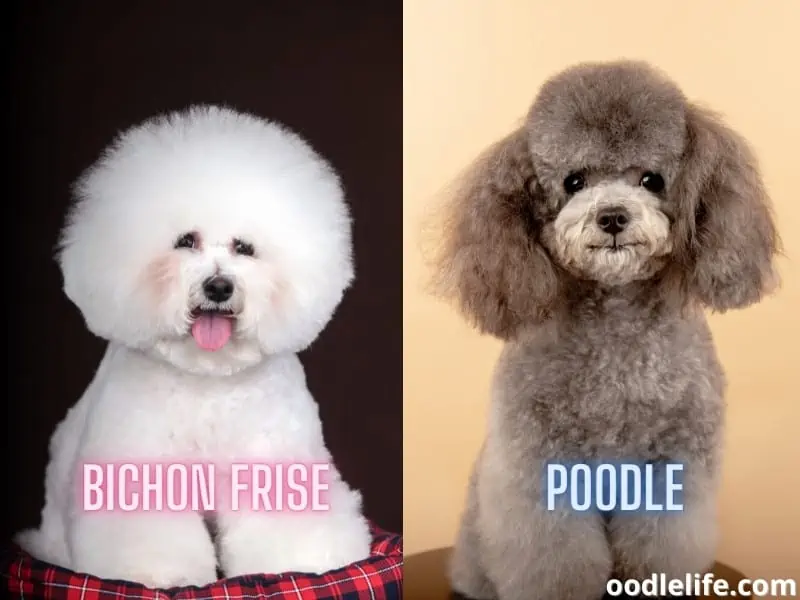
Coat Types of Bichon Frise vs. Poodle
Both Bichon Frise and Poodles have hypoallergenic coats, meaning that they shed little and therefore produce fewer cases of allergic reactions in humans.
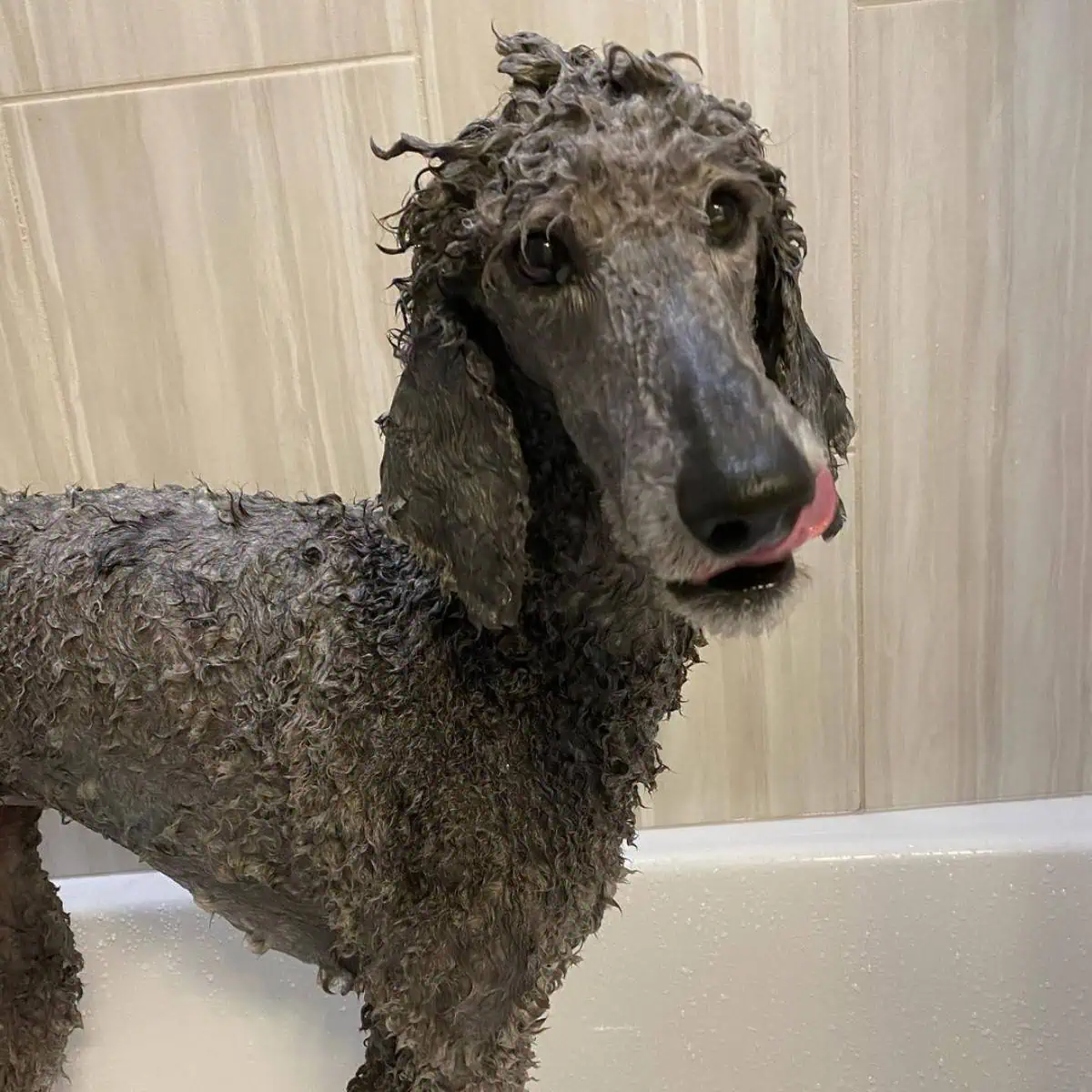
They also have wiry, curly coats that make them resemble teddy bears.
Although their curls make them adorable, both Bichon Frises and Poodles need regular grooming to keep them looking good and their skin healthy.
You should brush them at least three times per week, although daily brushing is ideal. Furthermore, the Bichon Frise will need a bath and grooming every one to three weeks.
In contrast, Poodles need slightly less care, with grooming every three to six weeks.
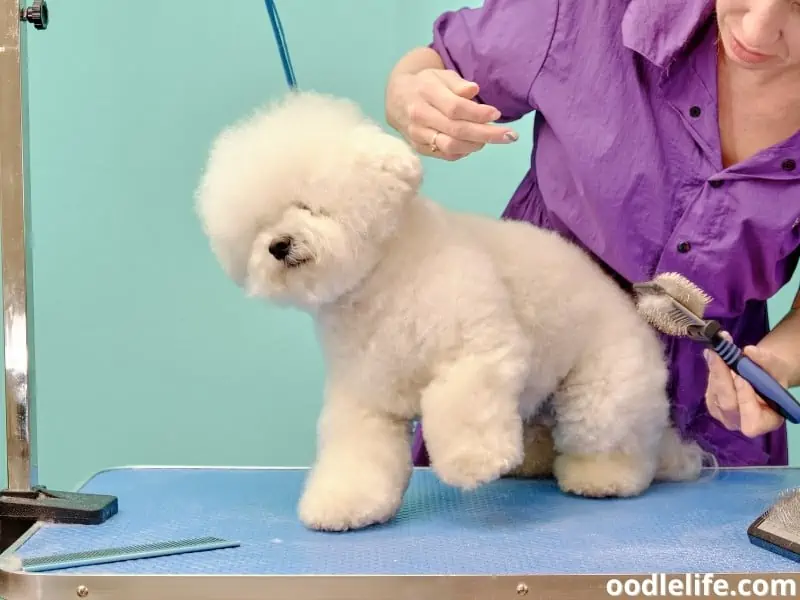
Size Difference in Bichon Frise vs. Poodle
Depending on the size of the Poodle you’re comparing, it can be challenging to tell the difference between Bichon Frises and Poodles. That’s because adult Bichon Frises only reach nine to 12 inches in height and 12-18 pounds.
Therefore, these dogs have a similar height and weight to Miniature Poodles, which can grow up to 15 inches and weigh between 12-20 pounds.
Unlike Bichon Frises, which have a single size, Poodles come in the following three sizes:
- Miniature: 10 inches tall; 6-9 pounds
- Toy: 15 inches tall; 12-20 pounds
- Standard: 22 inches tall; 45-70 pounds
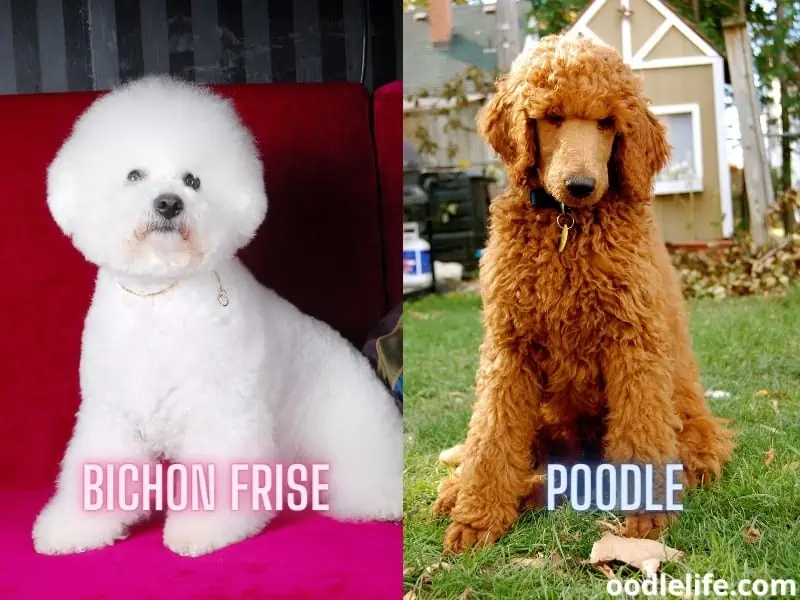
Temperament and Personality in Bichon Frises and Poodles
Bichon Frises and Poodles have similar temperaments, including having lots of energy and being loving, loyal pets. Poodles will go out of their way to make their owners laugh, and they have high intelligence, making them a joy to train.
In contrast, Bichon Frises have a personality that will melt your heart with their sweetness. So, you can expect them to want lots of cuddles in between running around.
Although the temperament and personality of Bichon Frises and Poodles are similar enough to make it challenging to choose between the two, if you have young children, a Toy or Standard Poodle is likely your best choice.
That’s because a Poodle’s larger size makes them more easily withstand the “love” from a young child who may play roughly with your pet.
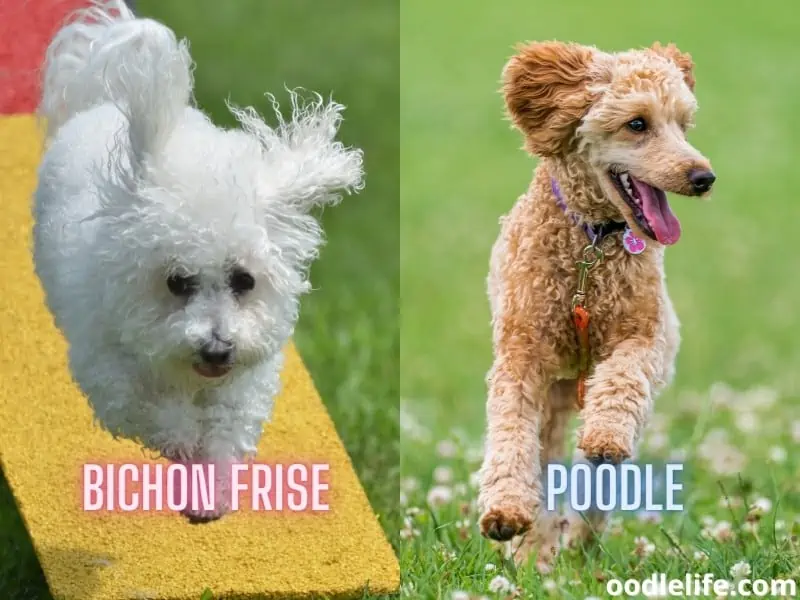
Health and Longevity [Do Bichon Frises or Poodles Live Longer?]
Bichon Frises have a lifespan of 12-15 years, which is on the high side for a dog’s lifespan, thanks to their small size.
In contrast, Poodles have a similar average lifespan. However, statistically, you can expect Miniature and Toy Poodles to outlive Standard Poodles. Researchers have several theories for why this may be, but one idea is that larger dogs age quicker because they put more strain on their physiological processes.
Although your Bichon Frise or Poodle’s size may have an impact on how long they live, other factors come into play. They include:
- Genetics
- Nutrition
- Emotional wellbeing
- Annual veterinary check-ups
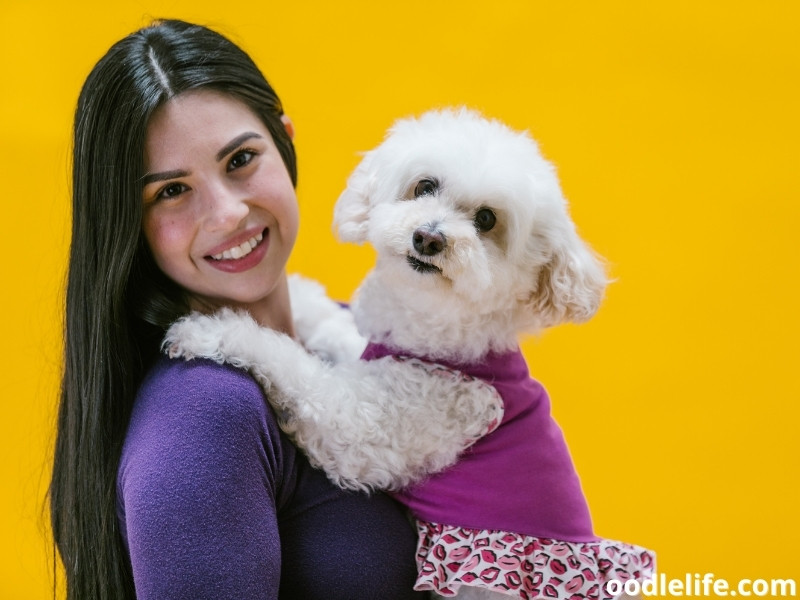
Breed-Specific Health Problems
One of the most notable health similarities between Bichon Frises and Poodles is their high chance of eye infections. That’s because these dogs have long hair that will grow in front of their eyes if you don’t keep it trimmed.
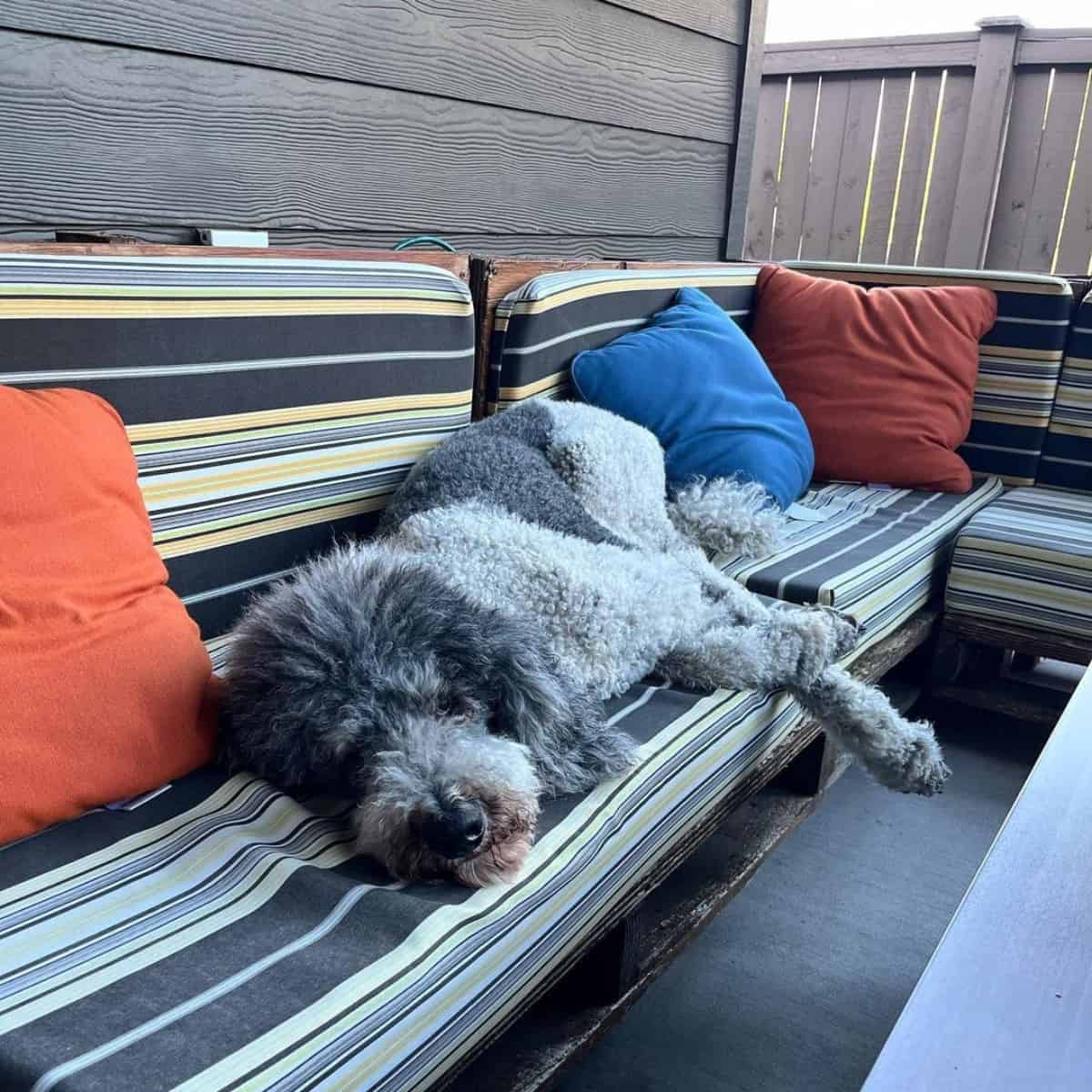
For this reason, it’s essential to trim this hair yourself or take them to the groomer.
Ear infections are another health problem that these breeds often face. Their floppy ears are the culprit, as less airflow reaches them. Therefore, if you have a Bichon Frise or Poodle that loves to swim, it’s crucial to dry their ears to decrease the chances of bacterial buildup.
Common health issues in Poodles include:
- Addison’s disease
- Gastric torsion
- Thyroid issues
- Progressive retinal atrophy
On the other hand, Bichon Frises have a higher chance of suffering from the following conditions:
- Portosystemic shunt
- Kidney stones
- Luxating patella
- Legg-Calve-Perthes
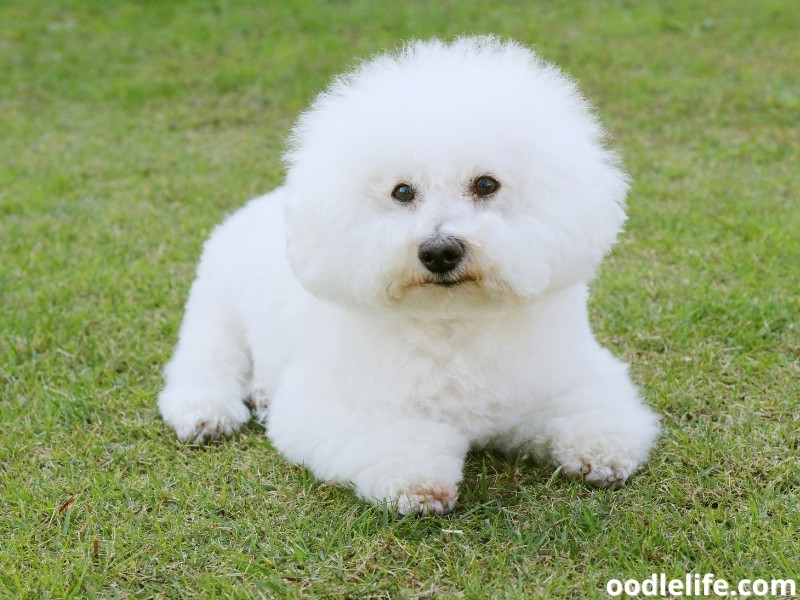
Poodle and Bichon Frise Needs and Training
Poodles and Bichon Frises are capable of learning the same commands. However, if you have a Poodle and Bichon Frise side by side in a dog training class, the Poodle will likely learn those commands faster.
That’s because Poodles tend to have an exceptional amount of drive to please their owners. They’re also curious animals, so it’s easy to keep their interest piqued if you keep their training interesting.
In contrast, Bichon Frises tend to have a shorter attention span. Their less athletic build may also make it more difficult for them to learn certain tricks, depending on what you’re training them to do.
When training your Bichon Frise to go potty outside, I recommend crating them until they get the hang of it. Otherwise, you may end up cleaning more accidents in the house than if you own a Poodle.
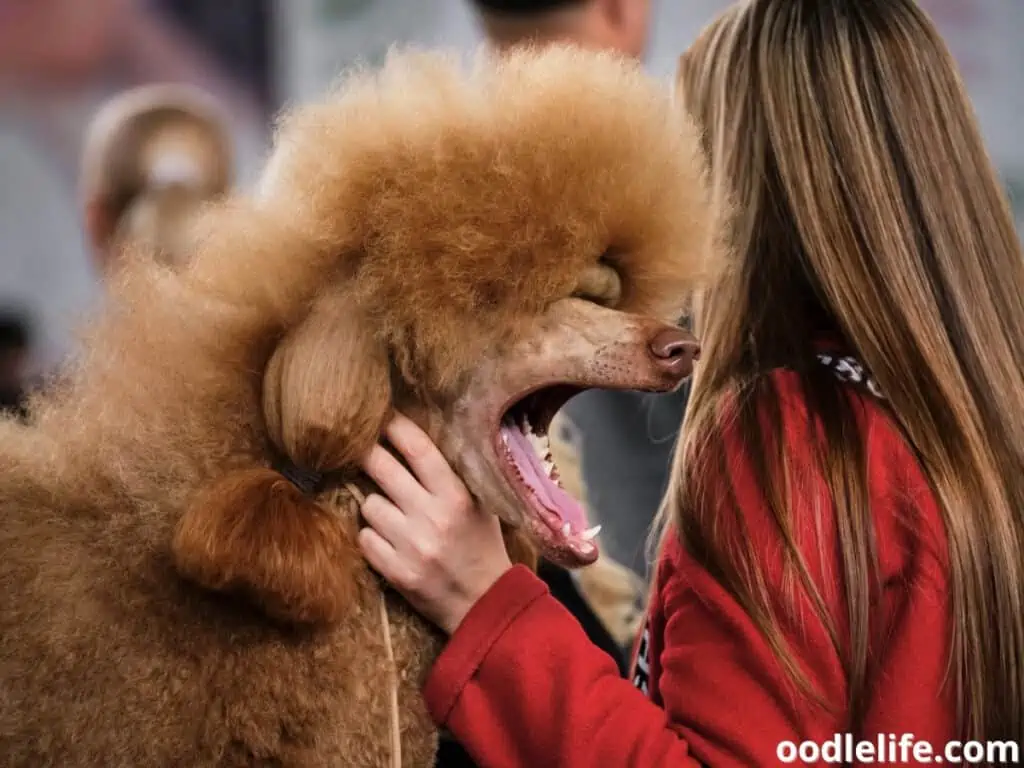
Cost Comparison
If you’re working with a budget and have your heart set on buying a Bichon Frise or Poodle, a Bichon Frise will likely be a better fit for you.
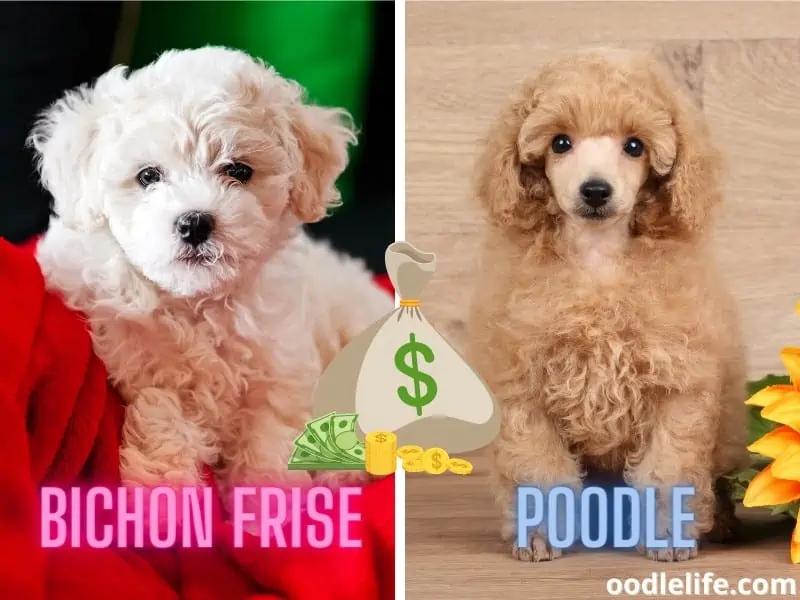
The price for a young Bichon Frise starts at about $800 compared to around $1,200 for a Poodle.
That said, the prices can vary wildly, especially in Poodles. If you purchase an older Poodle with excellent lineage, you can expect to pay upwards of $10,000. Of the Poodle varieties, Miniature and Toy Poodles cost the most.
In contrast, the highest amount you’ll pay for a Bichon Frise is around $2,500.
In the case of both Bichon Frise and Poodles, the following factors impact their price, including:
- The dog’s genes
- Breeder reputation
- Location of the dog
Should these prices be out of your budget, turning to your local animal shelter is a wonderful solution. If they don’t currently have a Bichon Frise or Poodle up for adoption, they can usually put you on a waiting list.
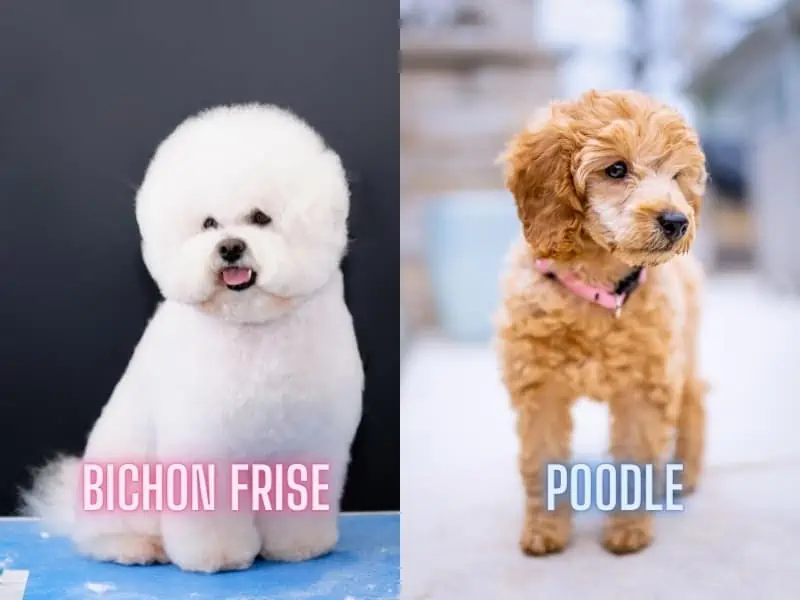
Final Thoughts
So, does the Bichon Frise or Poodle sound like a better fit for your household?
I recommend the Poodle if you’re looking for a larger dog that’s quick to train. In contrast, the Bichon Frise is an excellent option for its lap-sized qualities and more economical price tag.
While there are many differences between these dog breeds, they’re both loyal and loving, making them a joy to bring home.